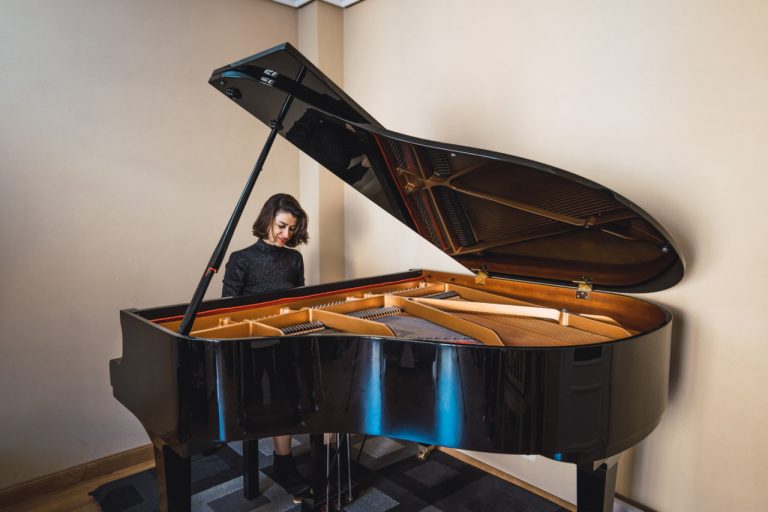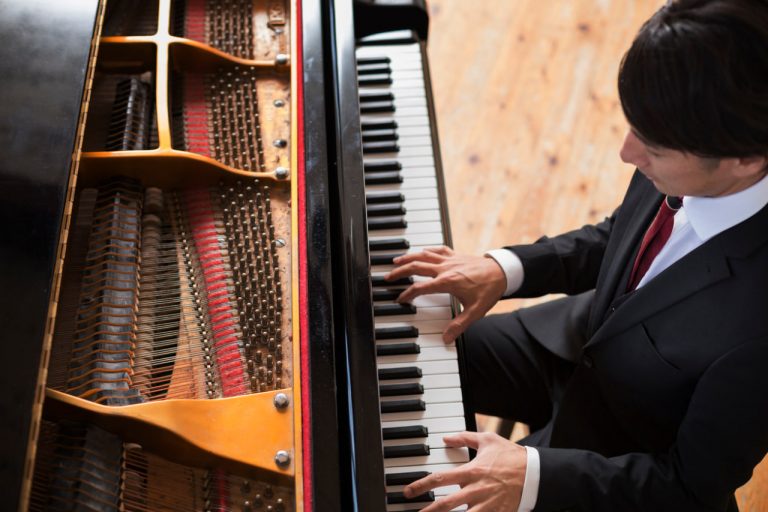When starting piano, many beginners believe that practicing for hours is the only way to improve. In reality, effective practice is about quality, not quantity. Short, focused sessions often produce better results than long, unfocused ones. By practicing smarter, you can make steady progress without feeling overwhelmed or frustrated.
Set Clear Goals for Each Session
Before you sit down at the piano, decide what you want to accomplish. A goal could be as simple as learning four measures of a new piece, mastering a tricky rhythm, or practicing hand coordination. With a clear target, your practice becomes focused and efficient, and you avoid the common trap of playing aimlessly.
Break Music into Small Sections
Instead of trying to play through an entire piece from start to finish, divide it into smaller parts. Work on a few measures at a time until they feel comfortable. This allows your brain and fingers to absorb the music more effectively. Once you have mastered each section, gradually connect them to build the full piece.
Slow Down to Speed Up
One of the most common mistakes beginners make is playing too quickly before they are ready. Start at a slow tempo, making sure every note, rhythm, and hand movement is correct. Once you can play accurately at a slower pace, gradually increase the speed. This method ensures steady improvement without creating bad habits.
Use Both Hands Separately Before Together
Coordinating both hands can be challenging at first. A smart strategy is to practice each hand separately until you are confident, then bring them together. This prevents frustration and helps you focus on accuracy. Over time, your coordination will improve, and playing with both hands will feel natural.
Focus on Difficult Passages First
It is tempting to start with the easy parts of a piece, but progress happens when you spend more time on the difficult sections. Identify the parts that cause mistakes and repeat them slowly until they become comfortable. By addressing challenges directly, you strengthen your overall playing.
Incorporate Rhythm Practice Away from the Piano
Rhythm is the foundation of music, and many beginners struggle with it. Try clapping, tapping, or counting rhythms away from the keyboard. This builds rhythmic awareness and makes it easier to apply correct timing when you play.
Keep Sessions Short and Consistent
A 20-minute session every day is often more effective than practicing for two hours once a week. Shorter, regular practice helps your brain retain information and prevents fatigue. Consistency builds habits, and habits lead to lasting progress.
Record and Review Your Playing
Listening to a recording of your practice can reveal details you may not notice while playing. You might catch uneven rhythms, missed notes, or phrasing issues. Reviewing your performance helps you identify areas to improve and track your progress over time.
End with Something You Enjoy
Finish each practice session by playing a piece you like or reviewing something you already know well. This keeps practice enjoyable and motivates you to return to the piano the next day. Ending on a positive note builds confidence and reinforces your love for music.



